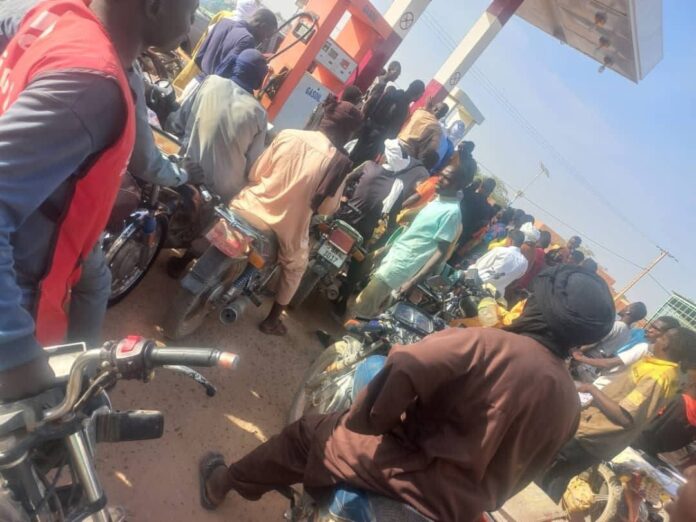Agadez, the capital of Niger Republic’s Aïr region, is in the grip of a worsening fuel crisis, sending shockwaves through its economy. Fuel prices have skyrocketed to 2,500 FCFA per liter, crippling transportation, businesses, and daily life.
Long queues snake around the few stations still selling fuel, while black market prices soar beyond reach. The shortage has worsened inflation, compounding economic difficulties for residents already struggling with rising food prices, unpaid salaries, and dwindling job opportunities.
The crisis follows the July 2023 military coup led by General Abdourahamane Tiani, which promised economic “refoundation.” However, nearly two years later, many in Agadez say their hardships have only intensified.
“We can’t buy fuel, school fees are unaffordable, and salaries come late—where is the oil money?” a frustrated civil servant questioned.
Despite Niger’s oil boom—bolstered by a new pipeline exporting five times more crude—ordinary citizens see no relief. Business owners lament that high fuel costs are killing their operations, while fears grow that the government may slash salaries to sustain the controversial Solidarity and Security Fund (FSSP).
Corruption concerns are mounting, with reports of false stamp duties on essential documents like medical prescriptions and examination fees.
Economic analysts warn that if the fuel crisis persists, trade, security, and mobility in Agadez—a key transit hub in the Sahel—could collapse. As public outrage swells, citizens are demanding transparency on oil revenues and urgent action to stabilize the fuel supply.




